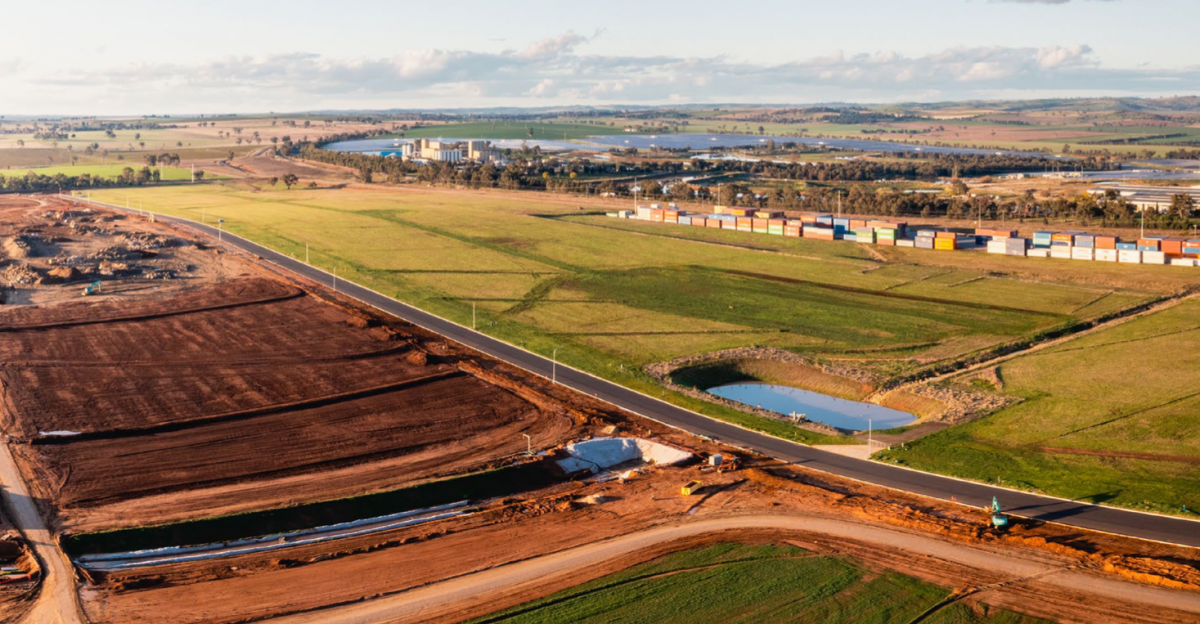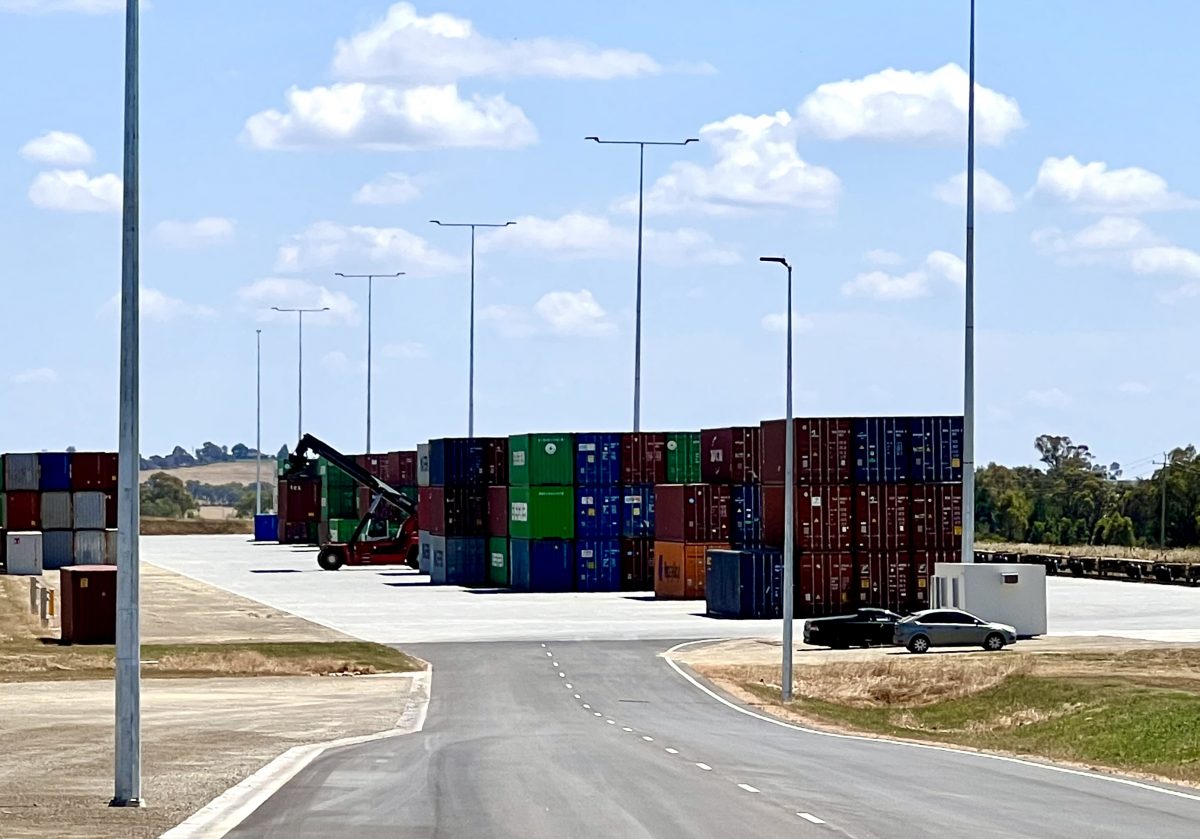
Wagga RiFL Hub is the key driver of the city’s ambitious Special Activation Precinct (SAP) at the Bomen Industrial Estate. Photo: Wagga Council.
Things are moving out at Bomen to Wagga’s north, and it’s not just the containers that have been pouring through the Riverina Intermodal Freight and Logistics (RiFL) Hub since Visy Logistics took charge in December last year.
The first commercial blocks have been released to market and Paul Powderly from Colliers Real Estate said expressions of interest (EOI) had been invited to attract tenants with a long-term vision.
“We’re not just selling land, and that’s probably important to understand because we could sell the land in three minutes, it’s more about finding people who actually want to relocate to Wagga and set up businesses there,” Mr Powderly explained.
“So it’s an expression-of-interest process to find users who want to buy the site and build themselves a factory, and the whole idea is to drive the wider region and promote growth and get more people working and living there.”
The RiFL terminal is the key driver of Wagga’s ambitious Special Activation Precinct (SAP) at the Bomen Industrial Estate and provides the ability to transfer containers from trucks to rail and send them north to Port Botany in Sydney or south to the Port of Melbourne.
“Overnight access to 75 per cent of Australia’s population,” the brochure promises, highlighting increased capacity in the future when the troubled Inland Rail project is finalised and connects through to Brisbane.
“It’s great that we’ve got an intermodal that’s a hive of activity every day,” said Wagga City Council general manager Peter Thompson.
“But our focus now is on securing business and development that is a benefit to our community and to the region, be that either through employment or the ability to add value to the primary production that occurs in the food bowl.”

The RiFL Hub is already in action, with further infrastructure to be built in the next 12 to 18 months. Photo: Chris Roe.
The hub will focus on attracting tenants across the major sectors of manufacturing, agribusiness, freight and logistics, and Mr Powderly said Colliers would utilise its international connections to attract overseas investment.
“We’re looking at anything that’s industrial and we’ve spoken to groups out of America: distilleries, international spare parts companies, and all sorts of businesses that can use that intersection of the intermodal hub,” he said, adding that regional Australia was a cost-effective option.
“When you’re paying anywhere between $600 to $1000 a square metre for industrial land in Canberra, Sydney and parts of Melbourne, this land will be well under $200 per square metre because it’s about getting businesses established and obviously Wagga is more cost-effective for housing and everything else that a business needs.”
As well as developing existing industries, Mr Thompson said, the council was keen to expand into new areas and find companies prepared to think outside the box.
“I think the COVID period has been a wake-up to everyone in government in the community, just how quickly things can change when the conditions are set to innovation and change,” he said.
“One of those settings is attracting new business that isn’t yet done in Australia and new technology that isn’t yet pursued in Australia.
“In the fullness of time, it will be a key pillar to the Wagga economy.”
The EOI process opened this week and will run until 14 August before the submissions are assessed and the first agreements are finalised later in the year.







